2-Day Advanced Workshop: Clinical Applications of Internal Family Systems (IFS) – Frank Anderson MD (Digital Seminar)
$439.00 $132.00
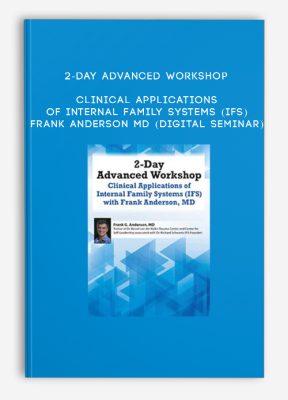
2-Day Advanced Workshop: Clinical Applications of Internal Family Systems (IFS) – Frank Anderson MD (Digital Seminar)
Sale Page
Archive Page
Get 2-Day Advanced Workshop: Clinical Applications of Internal Family Systems (IFS) – Frank Anderson MD (Digital Seminar) on Salaedu.com
Description:
Revolutionize your clinical approach and help your clients heal with Internal Family Systems therapy model.
IFS is one of the most popular, new, and effective evidence-based treatment techniques in use today.
Thousands of clinicians already trust IFS as their go-to treatment tool to effectively heal emotional wounds so they can make greater therapeutic progress with clients struggling with anxiety, depression, trauma, addiction, and other mental health conditions.
This 2-day recording is your opportunity to learn the IFS method step-by-step from Dr. Frank Anderson, one of the biggest names in the field.
Whether you are an experienced IFS therapist, a novice, or someone without any IFS training, this workshop will increase your clinical sophistication and confidence with IFS so you can treat a wide range of clients more effectively than ever before.
In this 2-day workshop, you will learn the IFS method, a non-pathologizing approach to healing that is sweeping the field of mental health and beyond.
Join IFS expert, author, prominent clinician & psychiatrist Frank Anderson, MD, in this recording to learn how to help clients heal from the inside out. Dr. Anderson will teach you the IFS steps that he has learned to hone his clinical work – and that have produced such transformation in his clients. He will clearly present all the tools and techniques in an easy-to-learn fashion.
Explore several different applications of the IFS Model of therapy including; trauma and attachment, depression, anxiety, psychosis, addictions, eating disorders, and shame to name a few. Learn how to apply IFS when working with groups, children, parents, couples, and LGBTQ clients.
This is an experiential training that includes didactic lecture, video examples, practice, live demonstrations, and meditations.
Finish this recording feeling confident to start incorporating IFS into your clinical practice! Don’t miss out on learning from one of Internal Family Systems’ internationally known and respected lead trainers.
Outline:
Internal Family Systems (IFS)
- Comprehensive, compassionate, non-pathologizing treatment approach
- Paradigm-shifting perspective on “psychopathology”
- Easily integrated into other therapeutic modalities
- Teach clients to access inner wisdom and self-compassion to heal traumatic wounds
Evolution of the Model
- Development of the IFS model by Richard C. Schwartz, Ph.D.
- IFS as an empirically validated treatment: Summary of research support
- Goals of IFS therapy
- Starting an IFS session and the flow of the model
The Neuroscience of IFS
- The mind and the brain
- Neurons-networks and parts
- Meditation and self energy
- Understanding the fear response
IFS STEP-BY-STEP
Step 1: Using Meditative Processes to Identify and Connect with a Target Part
- Differentiate the person from the symptom
- Access a state of compassion and curiosity essential for healing
- Establish a relationship with the target part
- Learn the history and benevolent intention behind the symptom
Step 2: Working with Protective Parts
- Facilitate internal attachment work
- Learn to address the fears/concerns of protective parts
- Establish a trusting relationship with proactive and reactive parts
- Resolve internal conflicts
- Gain permission to proceed with healing
Step 3: Healing the Wound
- Connect with the wounded part
- Witness the pain rather than relive it
- Retrieve the wounded part
- Release/unburden thoughts, feelings, and physical sensations
- Life without the wound, the post-healing process
Therapist Parts
- Countertransference redefined
- Identifying parts that get in the way
- The Science of extreme reactions in therapists and clients
CLINICAL APPLICATIONS OF IFS
Trauma and Attachment
- Roadblocks to healing trauma
- Neurobiology of PTSD and Dissociation
- Dealing with the extreme symptoms and staying in Self
- Healing attachment wounds: What IFS offers
Depression and Anxiety
- Differentiating feelings from symptoms
- Address the biology and process the wound
- Protection or genetics
Psychosis and Bipolar Disorder
- Addressing psychotic parts
- Differentiating psychosis from trauma dysregulation
- Treating biological issues while addressing emotional pain
Substances and Addictions
- Befriending addictive parts
- Healing wounds or stopping use?
- Addressing the biology and the behavior after healing
Eating Disorders
- When food “abstinence” is not an option
- Multiple eating parts
- Self-led eating
Shame and Grief
- The shamer and the shamed
- Critical and neglect shame cycles
- Loss, letting go, and healing
IFS With Specific Client Populations
- Children and adolescents
- Parenting
- Couples
- Groups and inpatient settings
- LGBTQ
- Spirituality and culture
NLP online course
So what is NLP?
Firstly, NLP stands for Neuro-Linguistic Programming. Secondly neuro refers to your neurology;
Thirdly linguistic refers to language however, programming refers to how that neural language functions.
As a result,In other words, learning NLP is like learning the language of your own mind!
Moreover, NLP is the study of excellent communication–both with yourself, and with others.
It was developed by modeling excellent communicators and therapists who got results with their clients.
NLP is a set of tools and techniques, but it is so much more than that.
In conclusion, It is an attitude and a methodology of knowing how to achieve your goals and get results.
More Course: NLP – HYPNOSIS – PHILOSOPHY
Outstanding Course:Ericksonian Hypnosis and Generative Trance 12-Day Workshop 2010 by Stephen Gilligan
1 review for 2-Day Advanced Workshop: Clinical Applications of Internal Family Systems (IFS) – Frank Anderson MD (Digital Seminar)
Add a review Cancel reply
Related products
HYPNOSIS - NLP Courses
HYPNOSIS - NLP Courses
HYPNOSIS - NLP Courses
HYPNOSIS - NLP Courses

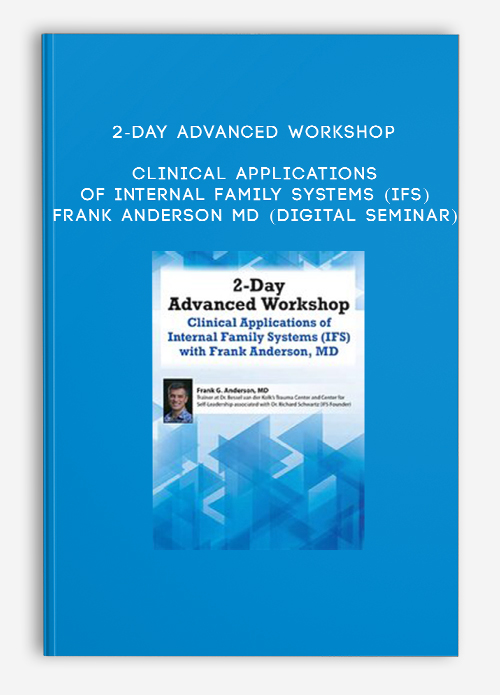
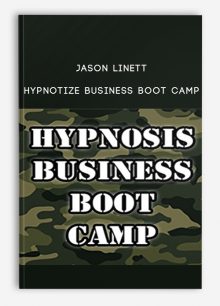
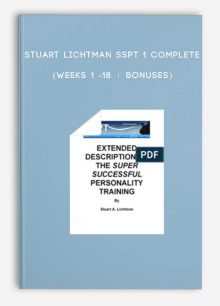


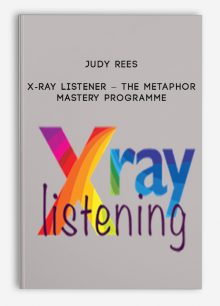

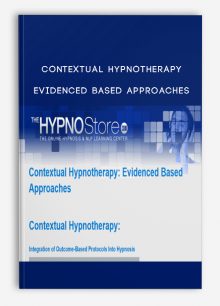

king –
We encourage you to check Content Proof carefully before paying.
“Excepted” these contents: “Online coaching, Software, Facebook group, Skype and Email support from Author.”
If you have enough money and feel good. We encourage you to buy this product from the original Author to get full other “Excepted” contents from them.
Thank you!